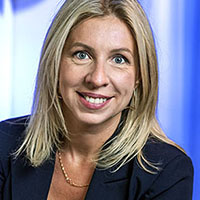Future leaders get to know cyber-physical systems

A new course will give INDEK students and other KTH students the basics of one of the hottest technology subjects: cyber-physical systems. " To be able to invest in new technology, we need people at expert- and management level with knowledge in the area," says Martin Törngren from the Department of Mechanical Engineering, who has been involved in developing the course.
Our societies are already dependent on them, and they are expanding without us thinking about them. You’ll find the cyber-physical systems in cars and other vehicles, in the aviation industry, in the environments of telecommunications, water supply, robotics, healthcare, and in the manufacturing industry.
Since the microprocessor was introduced in 1971, computer systems and communications have taken place in all possible types of systems and applications. The term cyber-physical systems (CPS) was established in the USA in 2006 to bring about multidisciplinary research to handle systems that integrate computers/software, networks, and physical processes. The concept has had a tremendous impact and led to the initiative "Industry 4.0". Today, cyber-physical components and systems exist on various scales, from robots and vehicles to collaborative systems such as smart grids and intelligent transport systems.
Now INDEK (Industrial economics and management) students will learn about cyber-physical systems and what they can do to contribute to a more intelligent society. The course is new and has been developed in collaboration between the Departments of Machine Design (MMK) and INDEK and telecom company Ericsson; however, it’s also available for other KTH students too.

”At the first course round, which started on November 1, we had participants from four programs at KTH - a good start,” says Martin Törngren , MMK, who has been involved in developing the course.
Why do the INDEK students need a course in cyber-physical systems?
”It was a request from the program Industrial Economics. Cyber-physical systems are increasingly used in different parts of society. To invest in new technology and, for example, switch to sustainable production methods, we need people at management and expert levels who know the area. CPS has sociotechnical implications. It is therefore essential to understand the fundamental abilities and characteristics of these systems. What role they play at different levels, how they can affect us and society, and how we can design them so that they are safe and work as we wish”.
Martin Törngren says that the need for this knowledge is growing. Products and services increasingly involve digital technology such as AI and connectivity, which, combined with physical systems such as sensors, 3D printing, and new energy sources, provide completely new capabilities. It offers unique opportunities for innovation but also drives increased complexity.
As the systems develop, we must also adopt the technology to organizations, processes, standards, legislation, and more.
”Swedish industry is in many ways facing similar challenges and trends. Cyber-physical systems, for example, provide new opportunities to address many of the sustainability challenges. But they also mean increased complexity and new risks. Our goal with the course is to contribute with a systems perspective and systems thinking; then there are many areas of specialization to go on with.”
Martin Törngren thinks that collaborating across institutional boundaries is important. Cyber-physical systems are a broad field, which in itself is multidisciplinary.
”Many of our major challenges such as climate crisis and cyber security do not care about our academic disciplines, I think this types of collaborations will increase”.

Elena Fersman , adjunct professor with a position at Ericsson and Rafia Inam, project manager within AI at Ericsson, confirms that the Swedish industry needs the knowledge. They have also been involved in developing the course.
”Industries such as telecom, automotive and mining use more and more cyber-physical systems as digitization and automation increases. Methods for effective control of CPS, therefore, become extra important. Artificial intelligence plays a vital role in the development and management of CPS. The industry is interested in graduate students with knowledge in design and efficient control of smart cyber-physical systems”, says Elena Fersman.
Text: Anna Gullers

